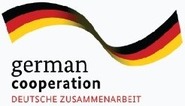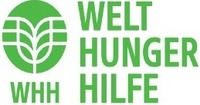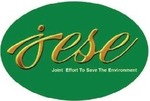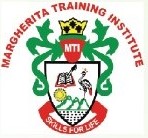Organization Profile
Mnik Community Foundation Limited was incorporated as a private liability company limited by guarantee without shares with registration No: 80034090660277 under Uganda Registration Service Bureau. It is located on Margarita street,moonlight building Kasese Municipality- Kasese district P.O. Box 430199, Kasese.
Mnik Community Foundation operates in Rwenzori region in the districts of Rubirizi, Kasese, Ntoroko, Bunyangabu, and Bundibugyo.
Our Vision
To restore and protect the global environment and promote health and self-reliant communities.
Our mission Statement
Leading the way in providing sustainable ecological soil health solutions and environmental visions, for the positive impact on our green world for future generations.
Our Goal
To empower communities with technology on how to utilize the locally available resource into resourceful to strengthen their economic standards and enhance sustainable development for self-reliance.
Our Core Values
- Transparency
- Integrity
- Professionalism
- Accountability
Our target groups are.
- Women
- Youths below 30 years
- Young mothers
- School dropouts
Our Trainings have several aspects on addition to the technical skills required.
- Real Life skills
- VSLA
- Communication skills
- Entrepreneurship skills
Company’s social engagements on Environmental conservation.
- Solar installation and Maintenance Training
Outreach Trainings for the Youths in Solar Installation and Maintenance across the Rwenzori region and Certified by Directorate of Industrial Training (DIT). (Community Based Service).
About 250 youths in Kasese District have been trained in Solar Installation and Maintenance and have been certified by Directorate of Industrial Training (DIT).
As Mnik Community Foundation, we promote, sensitize and do community awareness to use solar based energy instead of burning fossil fuels like coal and oils. Solar significantly reduces carbon footprints while simultaneously preserving the earth’s dwindling natural resources.
We have been able to achieve the above through the different engagement with our partners who are Kiima Foods in Kasese, JESE in Fort portal, SATNET in Fort portal and WELTHUNGERHILFE the donor under Green College Initiative program, USSIA and ENABEL under instant Training.
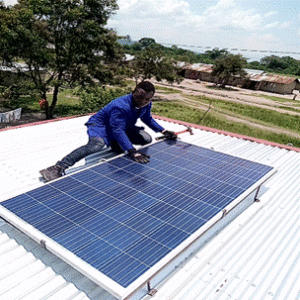

- Energy Efficient Cook Stoves
Over 90% of the population in Rwenzori region relies on traditional biomass for cooking, which is typically associated with negative environmental, health, economic, and social impacts. We have been implementing supply of Energy efficient cook stoves to the community or local households on credit systems with Kiima foods as our supplying partners and the community adopted positively the ideology though more awareness is still needed
The use of energy efficient cook stoves leads to less fuel wood usage, less tree cut down, and lower greenhouse gas emissions. This is helping to mitigate climate and reduce deforestation.

- Water Tank Construction
Water storage provides a buffer against both floods and droughts, balances increase variability, and compensates for the loss of natural water storage systems, such as glaciers and wetlands.
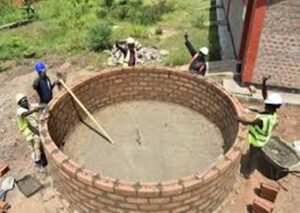
This is being implemented in public institutions like schools, hospitals, hotels, for alternatives for clean water sources during droughts and secondly to provide adaptation actions to reduce flooding.
- Trench Construction
Every year in the Rwenzori region, floods rip through the valleys, creating a path of destruction and burying people’s homes, property, and livelihoods.

Trenches are applicable to all soil and rainfall conditions, prevents soil degradation and erosion and enhances surface water infiltration and soil moisture, helps to reduce flood hazards.
- Landscape Management
Landscape management strategies have emerged through the world to deliberately increase synergies and reduce trade-offs among the rural livelihood development, agricultural production, and eco system conservation, through a variety of entry points.
Mnik Community Foundation has found out that spatial configuration of farmed and non-farmed areas in landscape is a key factor in conserving biodiversity and ecosystem services. For example, the effectiveness of fragmented protected areas is influenced by how easily wildlife can use and move through the agricultural production areas within the landscape.
The company intends to partner with farmers, rangers and forest managers. We also intend to coordinate the Managers of common property resources, such as forests, grazing lands, inland fisheries, and irrigation water and create a negotiation platform at a broader level.
Farmers, land users and government who depend on food security on highly degraded ecosystems, are finding that ecosystem restoration can increase agricultural communities, and catalyze economic growth.
- Bee keeping
Bee keeping preserve, protect established forest they also preserve fragile soils from erosion and land slippage, they support natural watershed management and become a factor in the protection of forest biodiversity.
As Mnik Community Foundation, needs support from the different partners and stakeholders to create awareness and train the local communities on how to keep bees alongside their other farming activities as a way of addressing rural poverty and general health issues.
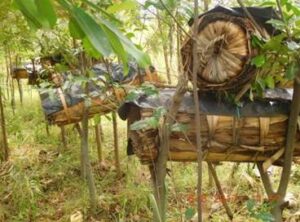
Production of Briquettes
Not only do briquettes recycle waste that could otherwise end up polluting the environment, but they also burn cleaner than firewood, releasing less greenhouse gases.
Using briquettes as an alternative energy source reduces wood cutting that is contributing to deforestation.
Briquettes fit nicely into the circular bio-economy approaches that aim to reduce waste and spur more sustainable bio resources and market – based practices, while sustaining rural-urban linkages.

MNIK community foundation partnered with Kwatampora workshop and Uganda Small Scale Industries Association (USSIA) in training of youths and local communities in production and sales of briquettes to create major income opportunities for entrepreneurs and participants in the supply chain. There is a huge potential in cooking and heating fuel market in Africa, and it is not difficult to establish briquette production operation. In addition, the competition is fragmented and there are no major, branded briquette businesses that have cornered the market.
- Tree Planting
As Mnik community foundation, understand that mankind still lives because of nature exists. However, this co-existence is being tampered with by mankind’s selfish activities which include charcoal burning and uncontrolled agricultural practices in Rwenzori region which have led to massive cutting down of trees. This has resulted into prolonged droughts leading to hunger, land conflicts, climate change and subsequent disappearance of glaciers on mount Rwenzori, which a major tourist attraction hence earning foreign exchange to the country.
We rolled a campaign to restore the ecosystem on the slopes of Rwenzori. Our target was to plant 40,000 trees by the end of 2026.the activity will target primary women and young people.
We therefore long to having partners in the different support aspects in the campaign. This may be financial, material, labor, expertise and consultancy.
- Bamboo products
Bamboo is a grass. It gets mistaken for a plant or tree, but it is part of the evergreen grass family. Bamboo is a unique grass and the largest that can diversify into a forest. Once grown some of the large species can look like trees with a wood like trunk, but they grow much faster and are much more sustainable for hardwood trees.
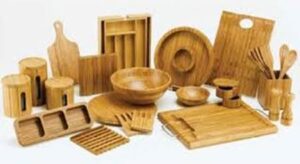
As MNIK community foundation, we found out a number of facts about this amazing grass.
- Bamboo is one of the fastest growing plants on the planet. Some species can even grow up to 90cm per day.
- Bamboo has an incredible tensile strength, and that is why it is used for many products.
- The amazing grass is highly a renewable resource. Once it has been harvested the roots will continue to grow without the need for re-planting.
- Bamboo absorbs more carbon-dioxide than trees and releases more oxygen. This makes it great for the environment.
Contact Us: Magherita Street, Moon Light Building, Kasese Municipality.
Tel: +256785479748, +256750725939
Email: mnikcommunityfoundation@gmail.com
The versatility and strength of Bamboo has made it an increasingly popular resource for many household products like.
- Flooring
- Furniture and work tops
- Kitchen utensils, chopping boards, cutlery, chopsticks, serving trays, and storage jars.
- Sports equipment such as stake boards, snowboards and bike frames.
- Bathroom necessities like towels, toothbrushes, cotton buds and hairbrushes
- Cases for mobile phones
- Re-usable items like coffee cups, flasks, drinking straws, plates and bowels
- Items of clothing like T-shirts, underwear and socks.
- Toilet paper and kitchen towels

